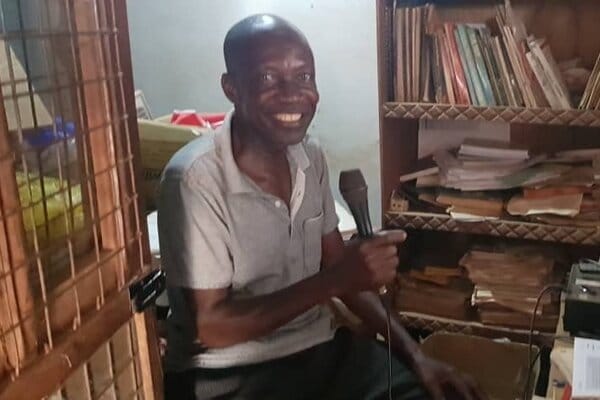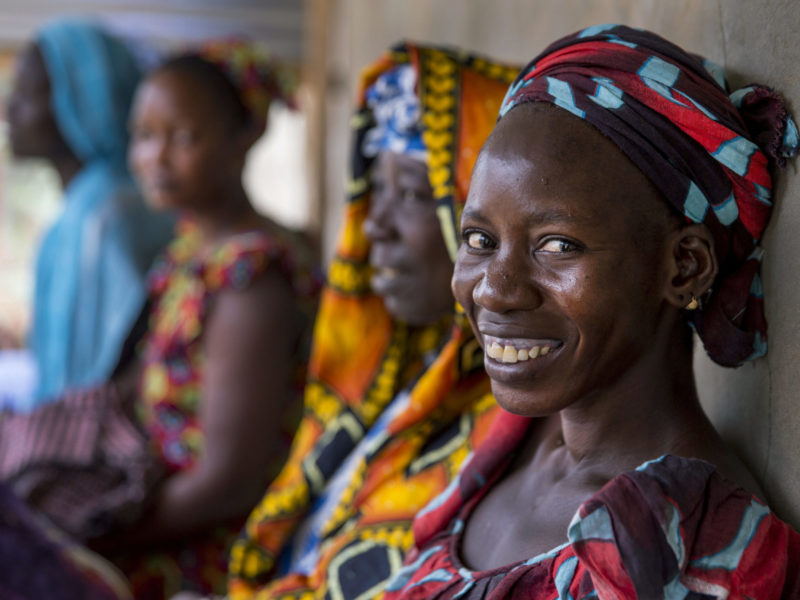In 2010, the Ghana Behavior Change Support Project (BCS) launched the national multimedia GoodLife campaign.The campaign included a song, “Life is what you make it” that links personal happiness to the practice of healthy behaviors, the highly popular GoodLife Game Show, a GoodLife New Year’s concert featuring many popular Ghanaian artists and the “Aha ye de” (It’s good here) malaria campaign showcasing a famous hip hop singer.
The GoodLife campaign also created materials, including billboards and TV spots, as well as the Daily GoodLife Guide and GoodLife Quiz that offer information on ORS plus Zinc tablets with a chance to win GoodLife prizes. It launched Life Choices, which includes a TV spot and mini-docudramas educating viewers on available contraceptive methods and addressing misconceptions about contraceptive use.
Through all these initiatives and materials, the GoodLife campaign seeks to unify BCS’s key focal areas: maternal and child health, family planning (FP), nutrition, water and sanitation, malaria and HIV/AIDS.
As it enters its final year, the USAID-funded Ghana BCS Project, managed by the Johns Hopkins Bloomberg School of Public Health Center for Communication Programs (JHU∙CCP) in partnership with the Ghana Health Service (GHS) and Ghana’s Ministry of Health, is proud to celebrate the many accomplishments of the GoodLife campaign.
Life Choices: Addressing Key Barriers to Contraceptive Use
BCS collaborated with GHS to design and implement the Life Choices campaign, which has led to increases in contraceptive use in the Greater Accra, Western and Central regions. The initiative addresses key barriers to contraceptive use in Ghana including concerns about side effects, lack of perceived social support, men’s involvement and understanding the life-altering consequences of unintended pregnancies.
Indeed, evaluations of the Life Choices campaign have shown that higher levels of exposure to the campaign are associated with significantly higher levels of use of modern contraception; knowledge of the types of methods; approval of FP use; dialogue about FP with one’s partner; and personal advocacy for FP.
The national contraceptive prevalence rate (CPR) has increased from 17 percent to 23 percent in three years, reversing a previous downward trend. Likewise, couple years of protection (CYP) increased by over 15 percent after the start of Life Choices, reaching over 75 percent of adults with FP messages.
The program works in conjunction with other USAID projects focused on increasing contraceptive supply and improving quality of care.
ORS plus Zinc: Promoting the Use of Zinc in an Effort to Reduce Child Mortality
The BCS-led ORS plus Zinc campaign introduced zinc tablets in Ghana and promotes their use in combination with ORS for the treatment of childhood diarrhea, aiming to sustain demand for zinc products as a means to reduce childhood mortality. The campaign is working to increase demand through TV, radio and print materials.
The campaign’s success is evident across Ghana. Over 70 percent of those exposed to the campaign responded “ORS plus Zinc” to the question “What is the best treatment for childhood diarrhea?”, as compared to 12 percent of those unexposed. Seventy-three percent of those exposed knew that zinc can provide protection from future cases of childhood diarrhea for up to three months, as compared to 11 percent of those unexposed.
And the campaign has not only had an effect on knowledge; it has had a dramatic effect on behavior as well. In contrast with the quarter prior to the launch of the campaign, private sector sales of ORS plus Zinc tablets increased dramatically by over 280 percent (about 8.1 million tablets) during the first quarter following the launch in 2012. The BCS project has seen over a 300 percent jump in the tablets to date.
Due to its quick and widespread success, the ORS plus Zinc initiative is already being used as a model to address the treatment of childhood diarrhea in other countries.
Increasing Blood Donation to Improve Safe Deliveries
When it was discovered that almost 50 percent of maternal deaths in the Greater Accra Region in 2010 were related to post-partum hemorrhage, partly due to the lack of available blood, BCS saw an opportunity for a GoodLife intervention.
Starting in June 2011, GHS and the National Blood Transfusion Service (NBTS), with technical and financial support from BCS, sought to increase both the immediate supply of blood in stock and the longer-term steady donation of blood independent of periodic campaigns.
Activities included training health personnel and volunteers, complemented by forming community blood donation groups to empower the communities to advocate for a more sustainable pool of blood donors. The campaign has also disseminated several radio and TV spots promoting blood donation toward the overall effort of reducing maternal mortality.
In 2012, the Greater Accra Region experienced a 53 percent increase in pints of blood donated as compared to the previous year, a positive step toward improving maternal mortality.
As efforts continue to expand the initiative this year, Mr. Emmanuel Nene Dei, Head of Research at NBTS, applauds BCS’s efforts, stating that “the USAID BCS Project’s intervention came at the right time because at a point some of us became demotivated because of the low numbers of voluntary blood donors.” Furthermore, he believes that the program “brought life into our activities and ultimately brought about improvement in the quantity of blood mobilized in the past year.”





